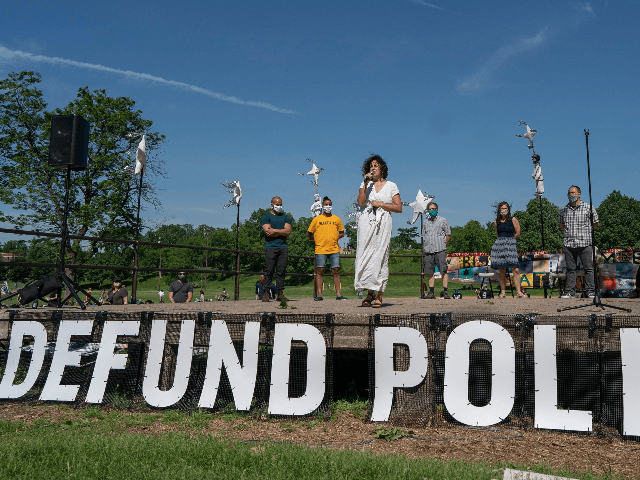A homeless camp in Minneapolis, Minnesota, is causing problems for neighbors who pledged to avoid calling the police into their community following the death of George Floyd.
After taking their vow, Powderhorn Park residents saw dozens of tents appear in a nearby park area, the New York Times reported Wednesday.
The article continued:
They were brought by homeless people who were displaced during the unrest that gripped the city. The multiracial group of roughly 300 new residents seems to grow larger and more entrenched every day. They do laundry, listen to music and strategize about how to find permanent housing. Some are hampered by mental illness, addiction or both.
“Their presence has drawn heavy car traffic into the neighborhood, some from drug dealers. At least two residents have overdosed in the encampment and had to be taken away in ambulances,” the Times report noted.
Other neighbors voiced their concerns about the growing number of homeless people during a meeting June 16, according to KARE 11.
“We demand to know our elected officials’ response to the emergency humanitarian situation in Powderhorn Park,” said resident Lily Lamb, who helped organize the event.
Neighbor Pat Kerrigan said he was concerned about people preying on the homeless living in the camp.
“You have drug dealing, you have prostitution and you have sex trafficking,” he explained.
Following a long discussion about the situation in the Powderhorn neighborhood, the Minneapolis Park Board voted last week to allow homeless encampments in city parks, according to MPRNews.org.
“Superintendent Al Bangoura said the park board is spending $7,400 per week to rent port-a-potties, and is also providing showers and electricity for those living at Powderhorn Park,” the article read.
The board also promised to work with government and nonprofit agencies to figure out a long-term solution.
When the camp appeared, the community organized shifts to deliver meals and offer medical care and counseling to the homeless, the Times article said.
However, some neighbors were ready for the homeless people to find stable housing somewhere else.
“I’m not being judgmental. It’s not personal,” said 44-year-old Carrie Nightshade, adding that she did not feel comfortable letting her two children play in the park alone.
“It’s just not safe,” she concluded.

COMMENTS
Please let us know if you're having issues with commenting.